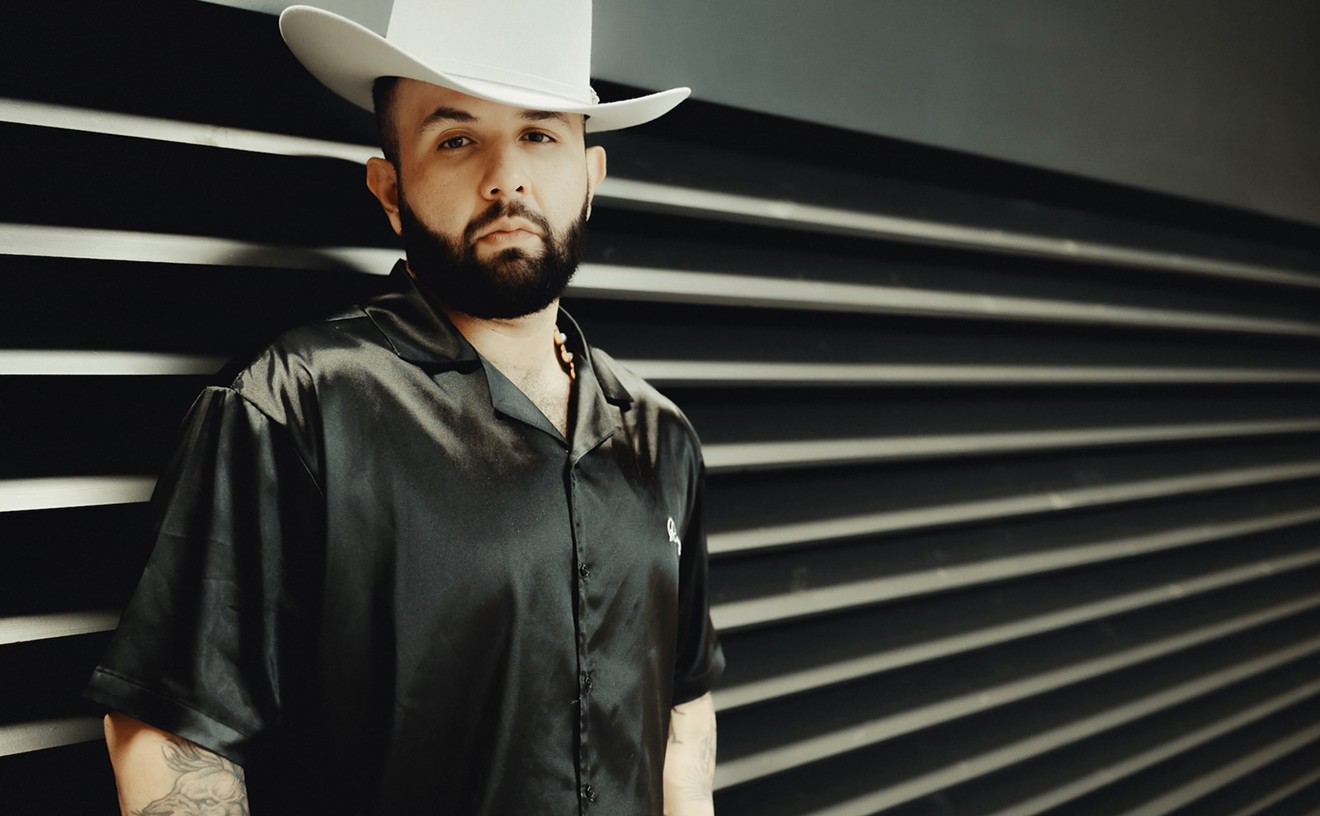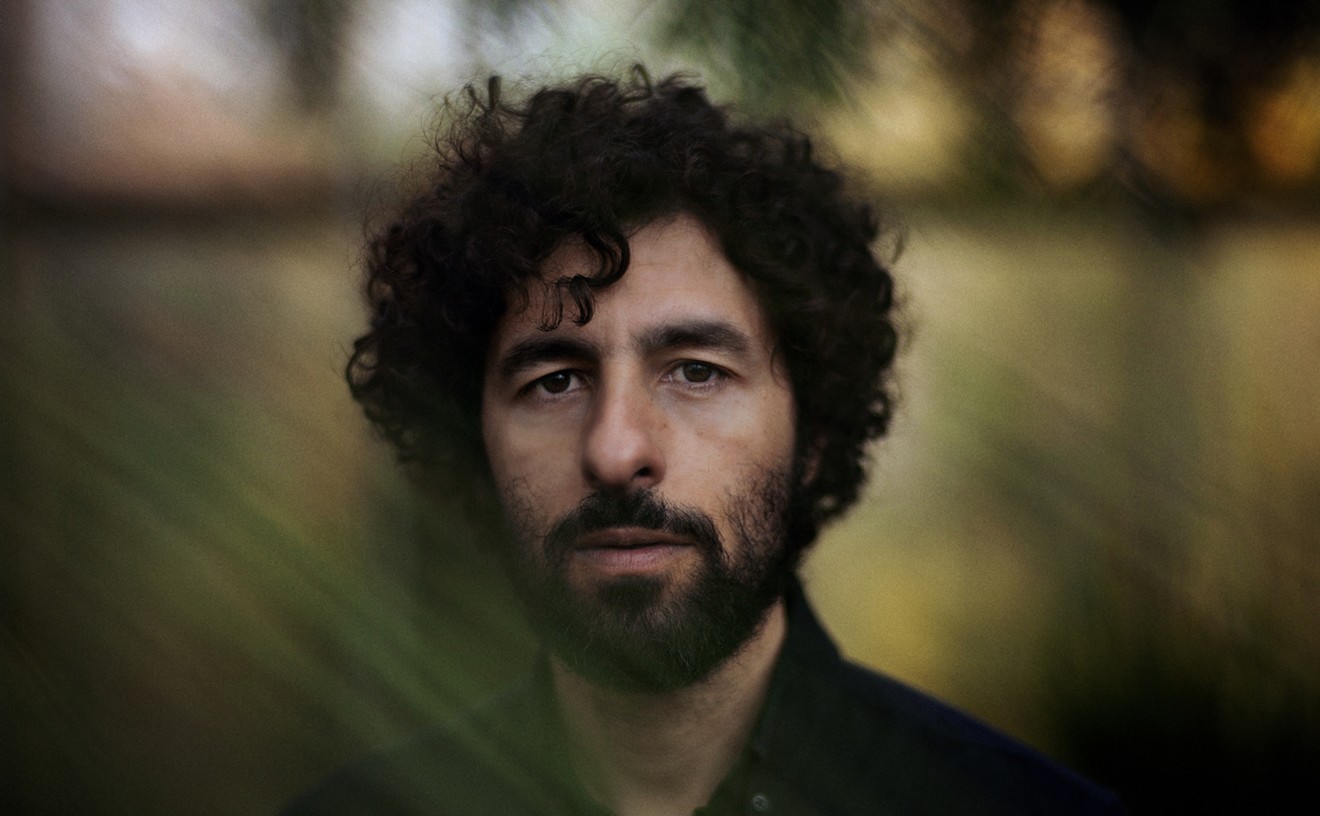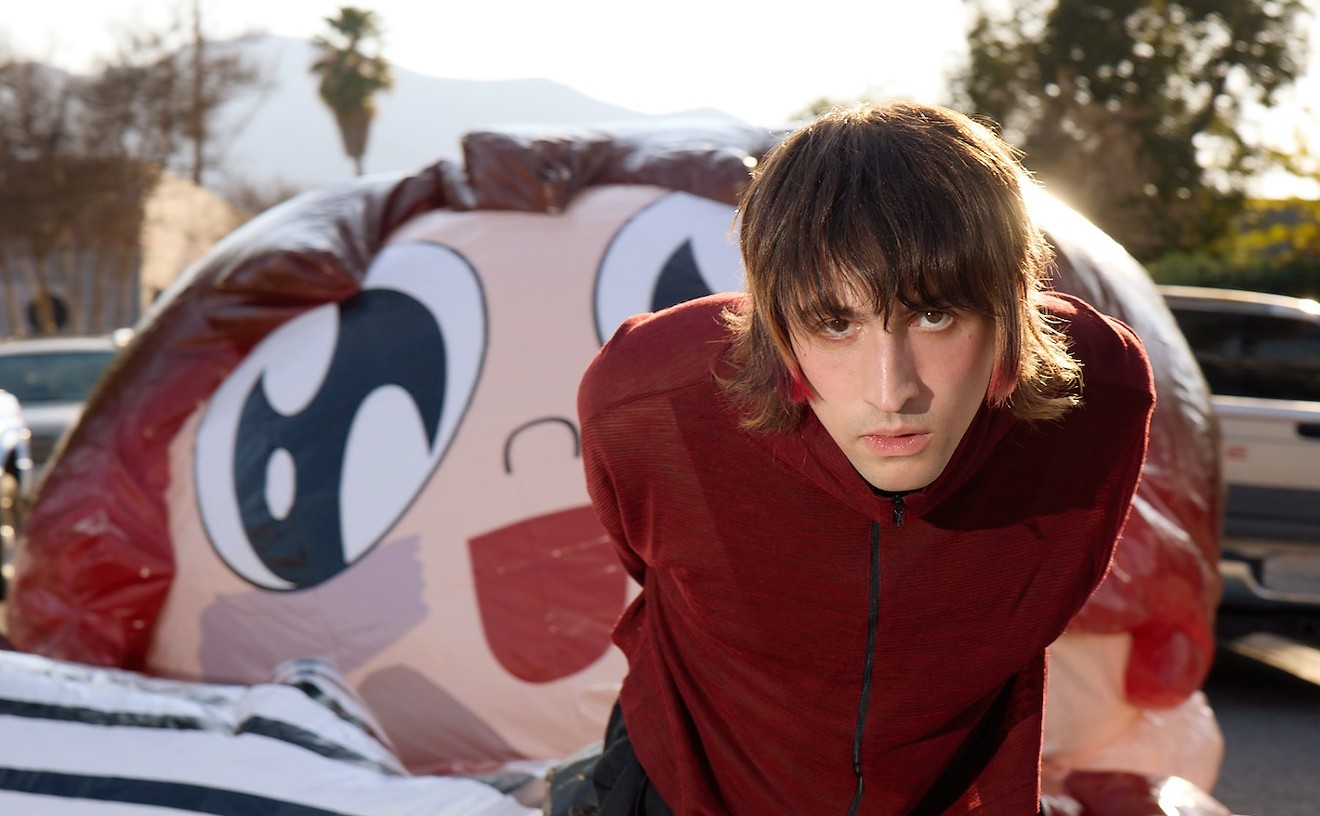The Cameo has had many incarnations, recalled fondly by punk rockers as the site of several legendary melees in the '80s, and most recently as one of Miami's last remaining spots for live acts too big for the bars, but not yet ready to fill the Arena. To that end the past year has seen the Cameo host a diverse array of music, from an intimate two-night stand with Bob Dylan to a spirited all-night session with Haitian nouvelle vague singer Sweet Mickey.
Smith is aware of the theatre's cultural legacy, but he's not exactly losing sleep over it. "The Cameo has been there since 1938 and it's certainly got a history, but it's not a history I want to be a part of," he remarks. "We have ten places in Chicago," Smith continues, referring to Big Time Productions (a company he co-owns) and its citywide fiefdom of restaurants and clubs, "and none of them do concerts. That's just not what I do for a living. I don't really want to book Bob Dylan, bless his soul. I'm just more interested in dance music and DJs."
In particular Smith is interested in booking big-name trance DJs such as Paul Van Dyk and Paul Oakenfold, and NYC-based high-energy house figures like Junior Vasquez. Of course these artists don't come cheap: Van Dyk commands upward of $10,000 to spin a set. Accordingly Smith plans to orient Crobar toward the high-end niche of South Beach nightlife currently occupied by the Living Room at the Strand and Bar Room, instituting the "bottle service," whereby patrons are required to purchase an entire bottle of (obscenely marked up) liquor in order to gain table seating. In the blue-collar-tinged atmosphere of Chicago, the bottle service has met with mixed reaction. On South Beach, however, there seems to be no shortage of people willing to pony up $500 for the privilege of sipping their Absolut while seated. "Let's just say there aren't as many Europeans here in Chicago," laughs Smith.
Whether or not there's enough "Europeans" to go around to financially support Crobar (as well as several other new velvet-rope-style clubs opening on South Beach later this year) is up for debate. Still Smith thinks he can compete by offering a less buttoned-down approach. "I can't believe South Beach isn't crazier," he says. "I really miss the twisted-up dressing approach to going out. Less suits, more divas and midgets." Smith plans on closing the Cameo for remodeling in mid-July, and aims to reopen for Halloween. Here's hoping Crobar's DJ roster expands to match Smith's nontraditional spirit. While comparable clubs such as NYC's Twilo are expanding their sonic palettes by featuring everyone from Detroit techno legend Jeff Mills to neo-disco experimentalist Joe Claussell, South Beach seems stuck in a rut.
"The live-music scene sucks" has long been a refrain among local musicians, and the closing of the Cameo certainly isn't going to help matters. To be fair, though, there is a host of bars that have been booking local acts week after week: Churchill's, Tobacco Road, Power Studios, the resuscitated Rose's, Satchmo, the Wallflower Gallery, Home, and the Hungry Sailor, to name just a few. And that's slighting the occasional touring Latin and Haitian outfits that have hit Timba, Starfish, Kay's, and the Mc Arthur Int' Cafe. What's missing from Miami are the national acts that regularly crisscross the nation, but never make it farther south than Orlando. These midlevel acts (precisely the ones that fit perfectly at the Cameo) not only provide opening slots to local groups (exposing them to larger audiences and a decent paycheck), but also inject fresh ideas, energy, and stylistic developments into otherwise isolated scenes.
So who's to blame? Conservatism on the part of local promoters is one factor, though those same promoters can justifiably point to audiences that are unwilling to venture to see more interesting out-of-town acts. Case in point: the recent Spider John Koerner show at Tobacco Road. A back-porch blues legend who has influenced everyone from Beck on back to fellow Minneapolis '60s coffeehouse folkie Dylan, Koerner played his heart out for no more than ten people, while an equal number stood talking loudly at the bar.
Physics plays a factor, too. Susanne McCarthy of the Chicago-based Flower Booking Agency handles many of the leading lights of the rock underground, such as Tortoise and Isotope 217. "The unfortunate geography is the culprit," McCarthy says. "When I'm routing a tour, I have a finite amount of time in which to get the artist to cover a significant portion of the United States. Generally this means only one or two shows in Florida, if at all. Because of these constraints, I'm usually forced to go with a Jacksonville, Gainesville, or Orlando show, and then get across the Panhandle and out of Florida."
And then there's economics. Laura Quinlan heads the Miami-based Rhythm Foundation, which specializes in bringing artists from around the world to town, including heavyweights such as Nigeria's Femi Kuti, Brazil's Tom Ze, and India's Ali Akbar Khan. For Quinlan many of these artists' star power works against a Miami appearance. A June concert with Brazil's Carlinhos Brown fell through for just this reason. "In Brazil these people are so big, they're used to artists' fees of $100,000, and they travel with an arena-style show and entourage," Quinlan says. "So when they come to America, they don't want to slum it. They want to bring 28 people with them, and they want $50,000. I had Carlinhos set for the Cameo, which holds 1300 people. You charge $20 a person, do the math. It doesn't work." Complicating matters further is the lack of a summer festival circuit, whose corporate sponsorship helps draw stellar international talent. "The summers here are too hot and it rains every day," says Quinlan with a laugh. "We just can't do the kind of outdoor festivals they do at the Central Park SummerStage in New York or the Hollywood Bowl out in Los Angeles." The news isn't all bad, though. The Rhythm Foundation presents Brazilian tropicalismo giant Caetano Veloso at the Jackie Gleason on July 17. "And," adds Quinlan, "I'm not giving up. Carlinhos will play here. Maybe not this summer, but he will play here."
-- Brett Sokol
Send your music news, local releases, and general gunk to Brett Sokol at 2800 Biscayne Blvd, Miami, FL 33137. Fax to 305-571-7678 or e-mail [email protected]










